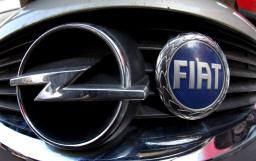Fiat on Thursday found itself forced to re-think its bid for German automaker Opel after General Motors reportedly upped the price for its European marque.
The move by GM for an additional 300 million euros for Opel's assets came during all-night negotiations with German federal and regional authorities, who must guarantee loans to cover the cost of spinning Opel off from GM, and thus protect it should GM, as expected, file for bankruptcy.
GM later denied it had increased its price, which remained 1.5 billion euros.
Although the meeting, which ended at 4.30am Thursday, did not resolve the loan question, the German government did decide to limit the bidding for Opel to a two-horse race between Fiat and Magna International, an Austrian-Canadian auto parts maker.
According to reports in the German press on Thursday, Magna, which is allied with Russia's biggest bank, Sberbank, has said that it will advance to the German government the 300 million euros GM allegedly wants.
Observers believe this will further improve its apparent edge over Fiat.
Many officials in Germany's federal and regional governments are said to favor Magna because it appears to be more Germany-orientated and thus are less likely to close plants and lay off workers.
These are seen as very important factors given that Germans will go to the polls later this year.
Although Fiat, too, aims to keep plants working in Germany, it faces some hostility from Opel management and unions dating back to the unsuccessful and unhappy alliance Fiat and GM had at the start of the decade.
What Fiat does have in its favor is its industrial vision which sees Opel as part of a trans-Atlantic auto giant with Fiat and Chrysler, with which the Italian automaker has already struck a partnership agreement.
Fiat CEO Sergio Marchionne was back in the USA on Thursday for talks with Chrysler officials and to monitor developments in New York where a bankruptcy court is expected to soon give its green light to the sale of key assets of Detroit's No.3 to Fiat.
Opel's future will be at the center of a meeting of European Union industry ministers in Brussels on Friday.
The meeting was called by the European Commission which was apparently concerned that an accord for Opel was too Germany-orientated, when GM produces Opels also in Belgium, Poland and Spain, as well as an Opel clone in Britain under the Vauxhall marque.
''The future of the automobile sector is of interest to all member states. This meeting will be an opportunity to exchange views on the situation in the sector and its future prospects,'' a spokesman for the European commissioner for industry, Guenter Verheugen, said.
Italy is expected to be represented by its industry minister, Claudio Scajola.
GM has to sell at least a stake in Opel by June 1 to respect its radical restructuring plan and thus qualify for further US federal bail-out funds.









